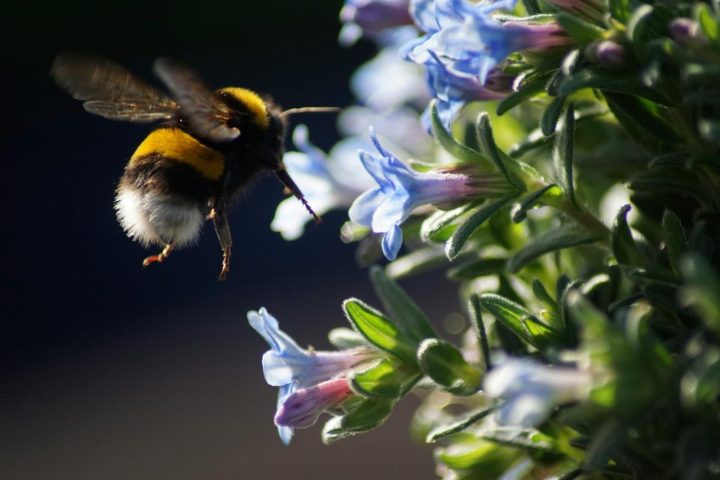A UK study has found that warmer springs cause bees to emerge from hibernation a week earlier, threatening the pollination of crops such as apples and pears. According to the study, for every 1 degree Celsius increase in temperature due to climate change, wild bees leave their nests an average of 6.5 days earlier. The study, published yesterday in the journal Ecology and Evolution, said:
“This climatic condition causes wild bees, such as bumblebees, to lose the ability to go out at the same time as the plants they depend on for food gathering bloom. As a result, the bees may have less food. This can leave bees without the energy they need to pollinate flowers effectively.”
PhD researcher Chris Wyver, lead researcher on the study from the University of Reading’s School of Agriculture, Policy and Development, said:
“Rising temperatures are making life harder for bees. Warmer conditions mean bees come out of hibernation earlier, but there may not be enough food to energize them when they start buzzing. It is vital for bees that plants bloom and bees wake up at the same time. Because they need to find pollen and nectar to increase their chances of survival and producing new offspring. Therefore, a lack of synchronization means that bees cannot effectively complete the pollination process.”
Khaled Ganim, Professor of Organic Agriculture and Head of the Department of Environment and Biodynamic Agriculture at Al-Azhar University, said, according to information obtained by Sharq al-Awsat:
“Such conditions lead to low sugar levels in flower nectar. This negatively affects the amount of energy bees need to fulfill their role in pollinating plants. It particularly harms female bees, which play the most important role in this process.”
“Lower natural pollination rates may result in farmers needing to use controlled honey bees. This means higher costs for consumers.” “We may see more apples, pears and vegetables in the fruit and vegetable aisles at more expensive prices,” he added.
In the research, scientists studied 88 different species of wild bees over a 40-year period and analyzed more than 350,000 individual records. At the end of the analysis, shifts in the emergence dates of bees due to temperature changes caused by the climate crisis were detected. The data showed that some bees appeared earlier than others, as different bee species respond differently to changing temperatures. On average, 88 species started to emerge four days earlier every decade.
To find out more about when fruit trees bloom, Wyver and colleagues from the University of Reading and Oracle for Research launched the FruitWatch project, which encourages people to report when trees in their gardens, backyards or where they are located start to bloom. With more than 6,500 pieces of data collected over two years, it is expected to help the research team better understand the role climate change is playing in the flowering of fruit trees and pollination by bees.
On the question of whether there are sustainable solutions proposed to mitigate the environmental and economic impact of this problem, Ganim pointed to “the breeding of wild bee species capable of adapting to these new conditions, or the study of producing stimuli that stimulate plants to flower earlier. In a statement to Shark al-Awsat, Ganim said:
“Plant shading should be used in a way that does not affect photosynthesis processes. This will reduce the impact of high temperatures. In addition, the soil can be covered with natural materials found in the environment, such as rice straw, sawdust or hay, to retain soil moisture and limit the temperature increase. These and other solutions will reduce the severity of the problem.”


